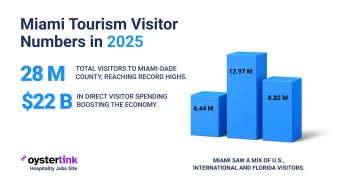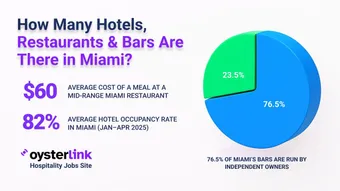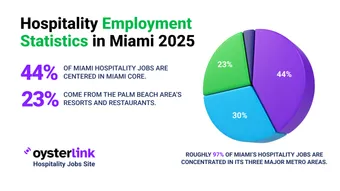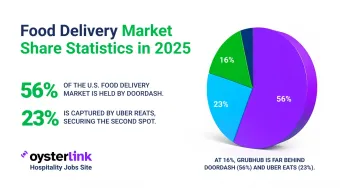How to Become a Pizza Maker Without Experience: Key Takeaways
- Start by learning essential kitchen skills such as knife handling, food safety, and equipment operation to build a strong foundation.
- Practice pizza-making techniques regularly at home to develop consistency, speed, and understanding of dough and oven management.
- Gain entry-level kitchen experience and obtain relevant certifications like ServSafe to improve job prospects and demonstrate professionalism.
Becoming a pizza maker without prior experience is achievable by carefully developing your skills, gaining hands-on kitchen exposure, and actively pursuing opportunities in the culinary field.
This guide offers practical steps to help you build the knowledge and confidence needed to start a rewarding career as a pizza maker.
1. Develop Fundamental Kitchen Skills To Become a Pizza Maker
Before diving into pizza making, it's important to master basic kitchen skills that ensure efficiency and safety in professional settings.
Learn essential techniques such as proper knife handling, understanding food safety protocols, and operating kitchen equipment.
For employers looking to build skilled kitchen staff, how to hire reliable kitchen staff provides useful guidance and templates.
Community colleges and online platforms offer short courses covering these basics, allowing you to gain knowledge at your own pace. These foundational skills provide a solid base for advanced pizza-making tasks.
2. Practice Pizza-Making Techniques Regularly
Practice is key to developing consistency and confidence as a pizza maker.
Experiment with different dough recipes, sauce preparations, and toppings at home. Aim to make 10 to 20 pizzas weekly to build muscle memory for dough stretching, assembling pizzas quickly, and managing oven temperatures.
Understanding how different ovens affect cooking times is essential for producing quality pizzas in a professional environment.
3. Gain Entry-Level Kitchen Experience To Start Your Career
Entry-level roles such as kitchen assistant, prep cook, or dishwasher offer valuable real-world exposure to restaurant kitchens.
If you want tips tailored for hiring entry-level roles, check out how to hire a cook for actionable advice.
Working in local pizzerias allows you to observe experienced pizza makers and learn workflow dynamics.
This experience demonstrates your commitment to the culinary field and builds practical skills that employers value.
4. Obtain Relevant Certifications For Better Job Opportunities
Food safety certifications like ServSafe are often required by employers and showcase your understanding of hygiene and safe handling.
These certifications add professionalism to your resume and increase your appeal to potential employers.
Completing a food handler’s certification program is a smart step to confirm your readiness for kitchen responsibilities.
5. Build a Culinary Portfolio To Showcase Your Skills
When starting without experience, a portfolio can demonstrate your dedication and practical abilities.
Photograph your pizza creations with attention to quality and detail. Record short videos exhibiting dough handling and oven management techniques.
Some employers value candidates who show initiative with portfolios; see how to make a strong impression in your hospitality leadership interview for tips on showcasing your strengths.
This tangible documentation helps validate your skills during job applications and interviews.
6. Craft a Targeted Resume and Cover Letter
Highlight transferable skills such as teamwork, attention to detail, and time management in your resume.
Include any training, coursework, or volunteer experience related to food preparation, even if informal.
Your cover letter should express enthusiasm for pizza making and a strong willingness to learn, helping you stand out in applications.
To improve your cover letter, you can review how to write a cover letter for hospitality roles.
7. Network and Apply For Pizza Maker Positions
Engage with the local culinary scene by attending food festivals, visiting pizzerias, and connecting with chefs and restaurant owners.
Applying actively and tailoring your materials to each job increases your chances of success.
Be prepared for practical tests during interviews where you'll showcase your pizza-making abilities under pressure.
For interview preparation specific to this role, visit Pizza Maker Interview Questions.
8. Consider Formal Training To Enhance Your Qualifications
Although not mandatory, enrolling in culinary courses or specialized pizza-making classes can provide advanced skills and deepen your food safety knowledge.
Formal education improves your qualifications and can accelerate career progression within the pizza industry.
Employers often value formal training; learn more about how to hire a restaurant manager to understand what qualities are beneficial in kitchen leadership.
Resources To Help You Become a Pizza Maker Without Experience
- U.S. Department of Labor – Fair Labor Standards Act (FLSA)
- ServSafe Food Handler Certification
- American Culinary Federation (ACF)
- Associazione Verace Pizza Napoletana (AVPN)
How to Become a Pizza Maker Without Experience: Conclusion
Starting your journey as a pizza maker without prior experience involves focused skill development, gaining entry-level kitchen exposure, and earning relevant certifications.
By practising pizza-making techniques consistently and creating a compelling portfolio, you can showcase your abilities effectively to employers.
Networking within the culinary community and considering formal training further enhance your chances of securing a pizza maker role.
With dedication and proactive effort, a rewarding career crafting delicious pizzas is within your reach.
For employers seeking to improve restaurant staffing strategies, restaurant staff hiring guidance can be invaluable.





